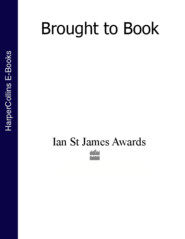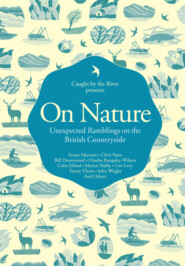По всем вопросам обращайтесь на: info@litportal.ru
(©) 2003-2025.
✖
In God’s Hands: The Spiritual Diaries of Pope St John Paul II
Автор
Год написания книги
2019
Настройки чтения
Размер шрифта
Высота строк
Поля
): the Father, the shepherd, the teacher–‘sanctifier’ – deserve a separate, contemplative study. The concept of the ‘father’ contains the beginning, the begetting of life and constant care for its maintenance in one’s own children. It is about life in its material and spiritual sense. The latter refers to spiritual fatherhood. The ‘shepherd’ is also the father when it comes to the concern for maintaining life (this is a narrower concept), and he is simultaneously the ‘leader of the sheepfold’ – the one who manages and governs. Teaching (the teacher) and sanctification are contained in the function of the father and shepherd.
We are constantly and repeatedly asked to grow gradually ever deeper roots in our people (crescere in plebem suam [to increase among one’s people]).
At the same time, this growing of roots offers a fuller entrance into the elements of vocation mentioned above. Their verification. A vocation also points to certain inner and outer forms of life.
The Little Hours; The Way of the Cross according to Fr W. Smereka’s commentary; Spiritual reading
Meditation 3: Thinking of people: ‘W.’ – this relationship is above all religious. This is its specificity. The sense of belonging governs the relation to God: First, it removed the most fundamental obstacle, and then, it has maintained and supported this relationship. (Conclusion: this form of belonging should probably not be done away with or fundamentally changed.) ‘T.’ and ‘M.’: the sense of belonging has above all a moral meaning, it helps to put one’s moral life in order – in a way, on two different poles of life. ‘T.’: it is more of an attachment than belonging; a certain struggle for belonging is taking place, especially for its moral consequences.
Vespers; Adoration of the Blessed Sacrament; Matins of the following day
Meditation 4: De apostolatu laicorum [On the apostolate of the laity]
Afterwards: reading three texts related to the Act of Consecration to the Mother of God
A visit to the exhibition on Brother Albert
Meditation 5: Three themes merge into one. The theme of ‘dialogue’ and the theme of ‘TP’ together with the consecration to the Mother of God. This year in a special way ‘I renew and ratify in Thy hands the vows of my Baptism’.
After all, my vocation and mission of today is contained within these vows. It is a mission of labour, because it has to integrate both defence and dialogue properly. That is why it needs to be – as the consequence of my baptism – entrusted to Mary in the spirit of holy slavery.
The completion of a difficult mission, which humanly nobody knows how to complete, through this consecration becomes an object of hope.
Rosary (III); Compline; Reading the Holy Scripture
29 February 1968 (#ulink_990d7bc7-4fbd-53ad-b8e8-49799f1a3a11)
(in via [on the way])
Day of reflection
Meditation 1 on the topic: (a) ‘dinumerare nos doce dies nostros, ut perveniamus ad sapientiam cordis’ [‘teach us to count our days that we may gain a wise heart’]
(Ps. 89); (b) nos confitentes poscimus Te, iuste Iudex cordium [in confession we plead with You, righteous Judge of hearts].
Meditation 2 on the overall picture of the ‘Roman’ matters
Penitential psalms; Litany of the Saints; Holy Hour; (Yesterday: the Way of the Cross)
11–14 September 1968 (#ulink_eda6094f-b701-5a41-b0d7-5435decbee2d) Retreat in Tyniec Topic: Union and rejection
Further preparation: Kalwaria Zebrzydowska: 9 and 10 July:
(a) (The question of how to put the Council into practice in Poland.)
(b) The Little Ways, petition for God’s blessing, ‘not to do harm’.
11 September
The end of the visit of the icon of the Mother of God to the Myślenice Deanery (Głogoczów) and the beginning of the visit to the Bolechowice Deanery (Zielonki): presence, the Word of God.
Studying notes from previous retreats – preparing the subject matter
12 September: Feast of the Most Holy Name of Mary
Lauds; Prime; Private Mass; Thanksgiving; ‘In me omnis spes vitae et virtutis’ [‘In me is all hope of life and of virtue’]
– as a Marian motto for the retreat
Meditation 1: Ten years have passed since my episcopal ordination and the retreat in Tyniec that preceded it. Time draws me away from this central fact in my life very quickly. The fact that will be of decisive significance for my death and for eternity.
Time and eternity – not as an abstract idea, but as a share of one and the same person. The perspective of participation in eternity, that is in God. This perspective is grounded in the reality of the Person – ‘on the side’ of God and on the human side.
The reality of the human person as a unity endowed with a certain transcendence and immortality of the soul (this matter awaits an in-depth consideration): Experience reveals to me not only the unity of existence, but also its complexity. Transcendent = spiritual; the basis of transcendence is the spirit. An awareness of the essential indestructibility of that which is spiritual and transcendent in a person (= its essence is such that it cannot be destroyed), e.g. moral or intellectual value. Hence the conclusion about the existence of an immanent cause in the human being, which is also indestructible. At the same time, the obvious evidence for the destructibility of the body: our ‘I’ as the body – destructible; as the spirit – indestructible.
The Little Hours; Conversation with Br Aug. on the matters of governance in the Church; Vespers
Adoration: The notion of transsignificatio [a change of meaning] and transfinalisatio [a change of aim] are not enough in themselves – trans-substantiatio [transubstantiation] reflects the depth of the mystery. ‘Beyond’ the reality of the Eucharist is the reality of God–Man, who ‘gives Himself entirely’ to us.
Rosary (III)
Meditation 2: On the matters which play a considerable role in my moral consciousness and conscience. First, their nature ‘in se’ [‘in themselves’]: diversity, the good – does it not include any subjectivity? – then ‘per accidens’ [‘contingently’]: the confessional – similar, but different – a ‘new stage’. A passionate petition for divine grace to help me carry out these matters well.
Matins; Holy Hour: Christ face to face with the Father: Your will – call for vigilance (Humanae vitae) – betrayal or weakness? (of priests).
Compline
13 September
Lauds (communal); Concelebrated Mass; Thanksgiving; Prime (private)
Meditation 1 (potius consideratio [rather a consideration]): On my role in the Council of Bishops; on ‘complementarity’ – which is important now because of the preparation for the implementation of the Council in Poland. Also here, at the retreat, I collect and put in order my thoughts which relate to this and I begin writing.
Rosary (I); Prayer for the gifts of the Holy Spirit; Rosary (II)
Meditation 2: Further reflection on the last things. Man is called to a union with God. This final union is a mystery of faith: heaven as well as hell and purgatory. Excedit intelligentiam [it exceeds our understanding]. If an analogy of any kind can be evoked here, it is the relationship of persons. In this light, the union is, firstly, ‘personal’, which means that it is a union in truth and love founded in mutual knowledge (seeing) and will; and it is, secondly, a union of persons: the union of the human person with the Persons of the Most Holy Trinity: with the Father through the Son in the Holy Spirit.
Rejection, that is, a non-union due to the lack of ‘personal’ foundation in truth and love, may be followed by a rejection of a person.
Finally: reaching maturity necessary for the union in contrast to the lack of maturity.
The Way of the Cross: The reflections on the Stations of the Cross partly followed the previous theme. The cross is, on the one hand, a tragedy of the rejection of God by the chosen people, yet at the same time, the cross rises above the tragedy of this rejection through the power of the redemptive, atoning and uplifting sacrifice – cf. the triple fall and the rising from weakness and mistake – from error and fault – from lies and hatred. Mary takes part in this, and She also helps us overcome that which causes our downfall.
The Little Hours; Conversation with Br Michaёle (as if [illegible] an ascetic talk) on the topic: ‘the apostolate fundamentally grounded in prayer and sacrifice’; Vespers
Adoration of the Blessed Sacrament: Marked by the revival of faith in the presence of the very same Christ who suffered on the cross: ‘transubstantiation’ – the beginning of this presence and its permanent foundation. He is present to give Himself to people. Here again the understanding of the ‘personal’ order helps a lot.
Meditation (consideration): A continuation of the morning’s questions. Then the topic of the love of the enemy. Testimony to the truth given in a courageous and tenacious way is necessary. Defence of the Church and righteousness is necessary. What remains is the attitude to people: one needs to pray all the more.











